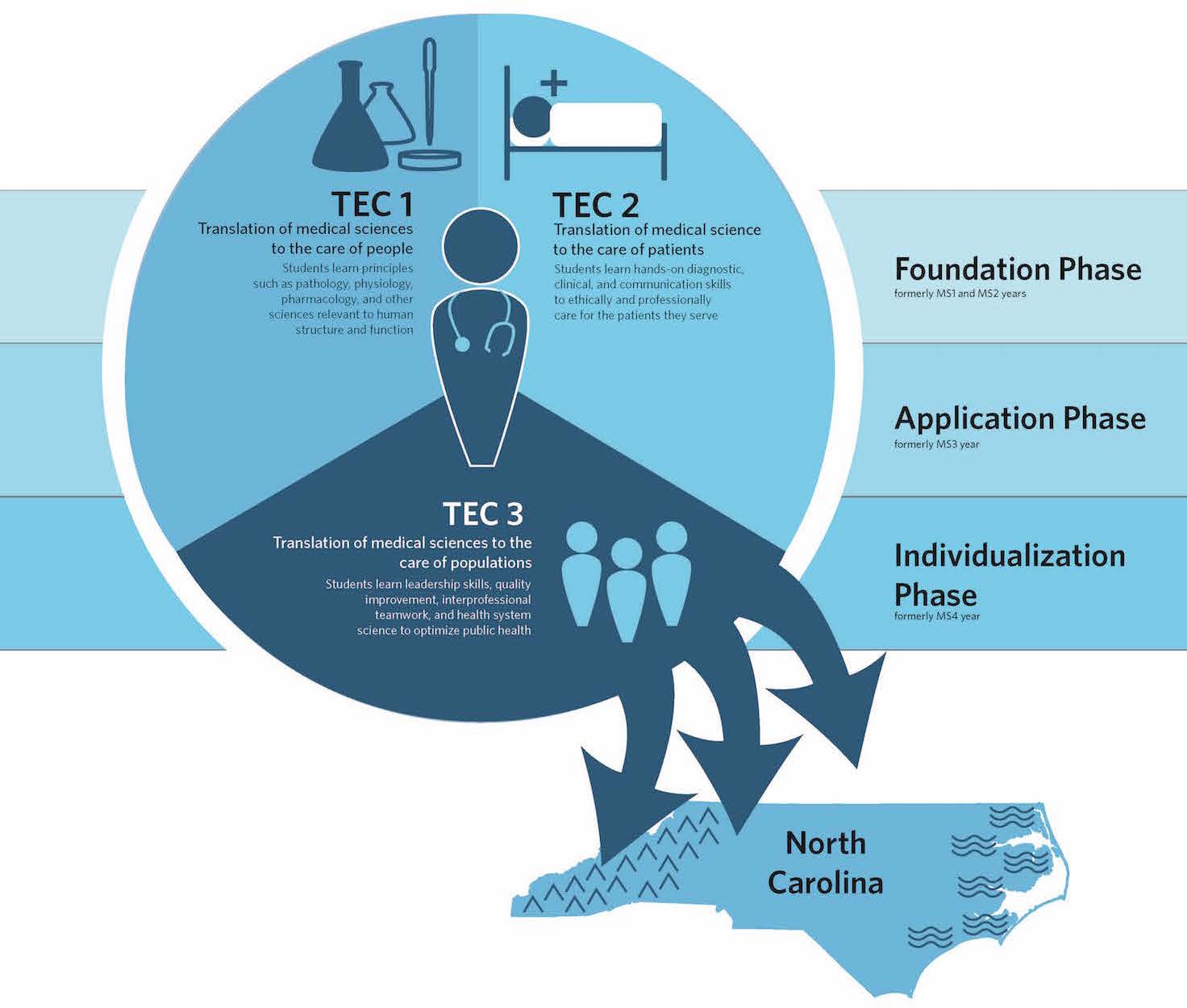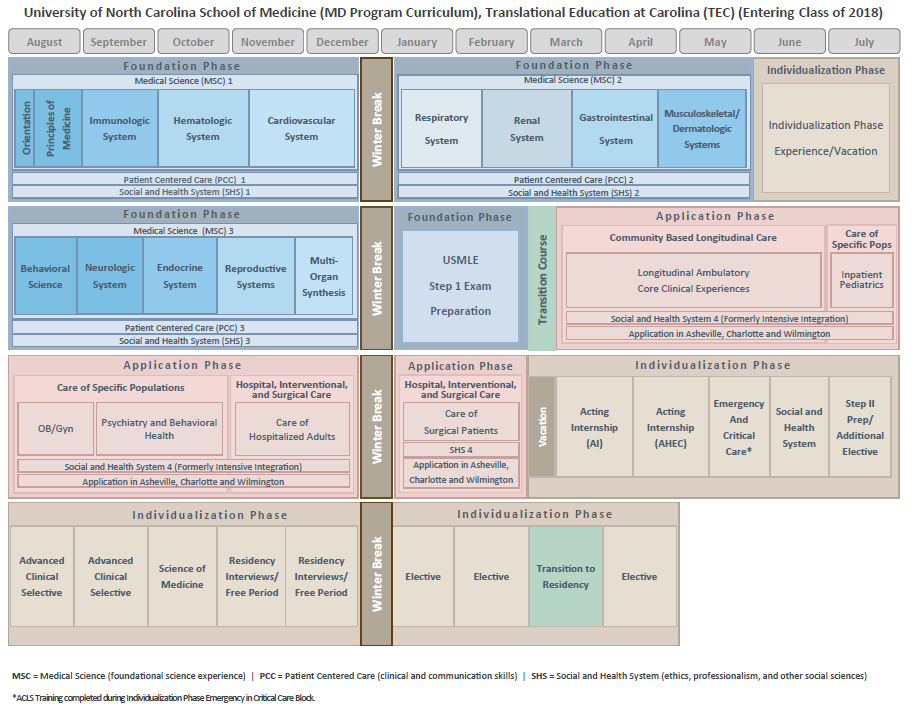Translational Education at Carolina (TEC) Overview
The School of Medicine launched its new curriculum, Translational Education at Carolina (TEC), in August 2014. TEC seeks to transform the way medical students learn the art and science of medicine by integrating basic sciences and clinical skills, providing longitudinal patient care experiences and offering earlier clinical opportunities in specialty fields to better inform residency program decisions. This redesigned curriculum reflects the ever-changing practice of medicine, meets the desire for early career differentiation and exploration, and incorporates the learning preferences of today’s medical students.

The TEC Curriculum was founded on the following principles:
- To be student-centered and patient-based, while being population, public health, and globally inspired.
- To facilitate the translation and integration of basic, clinical, and population science to enhance human health and well-being.
- To provide a strong foundation for entry into graduate medical education within the broad opportunities of medicine, while being flexible and individualized.
- To be responsive to the changing healthcare environment.
- To focus on promoting, supporting, and maintaining health, not just treating disease.
- To incorporate strengths of the university including opportunities for inter-professional and cross-disciplinary education.
- To provide longitudinal engagement with faculty and robust mentorship.
- To incorporate multiple modes of student learning.
- To instill intellectual curiosity developing an aptitude for critical thinking and lifelong learning.
- To promote the development of leadership skills, professionalism, ethics, humanism, and service to others.
TEC is composed of three phases:
Foundation Phase: Integrated course work in basic sciences and organ systems
Application Phase: Integrated core clinical rotations that students can complete in one of four programs: Central, Asheville, Charlotte, and Wilmington.
Individualization Phase: Electives and research opportunities
Coils: Coils represent basic sciences, such as biochemistry and microbiology, and specialty areas, such as radiology and behavioral science, that are integrated throughout the curriculum.
List of coils and directors.
Scholarly Concentration Program: Students also have the opportunity to pursue a scholarly concentration program beginning in Foundation Phase and culminating in Individualization Phase. Learn more about the scholarly concentration programs.
Educational and Curriculum Committees
The TEC Curriculum is guided by several faculty committees designed to develop, evaluate, and sustain the curriculum. Committees are comprised of faculty, students, and staff. Learn more about the structure and purpose of these committees.
School Policies
The UNC School of Medicine is guided by policies approved by the Education Committee and informed by LCME standards. Learn more the school’s policies.
